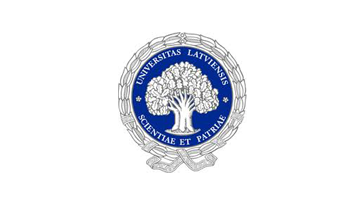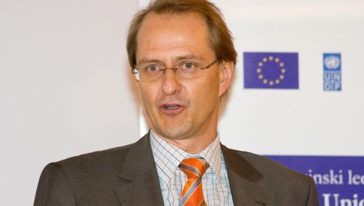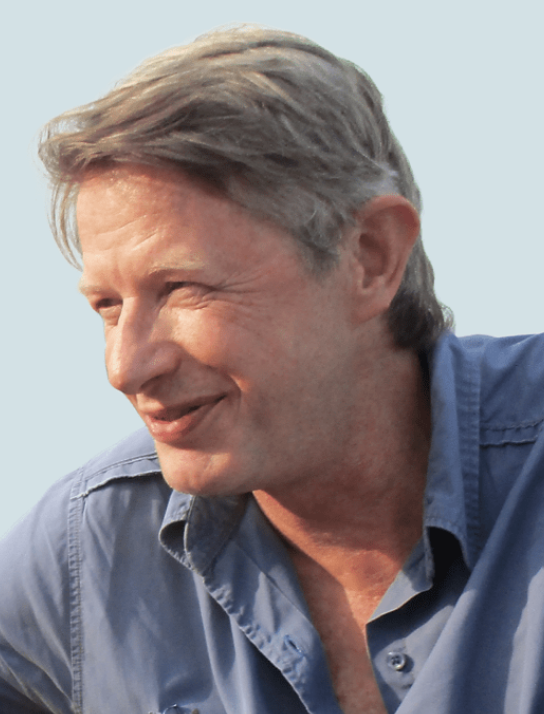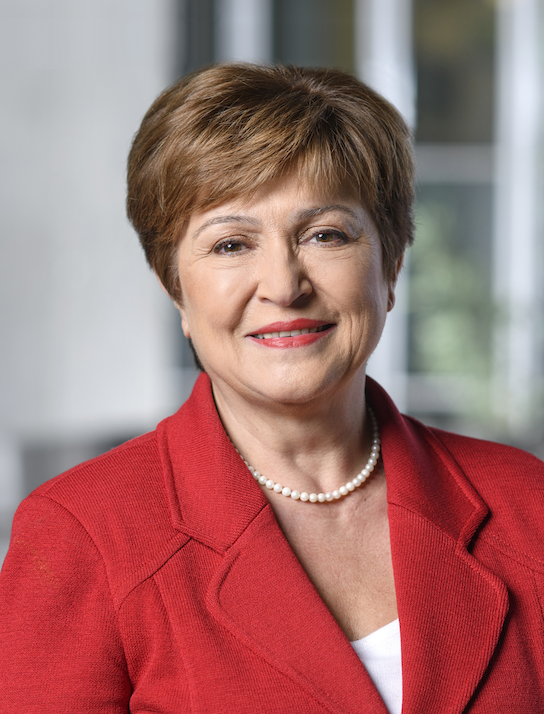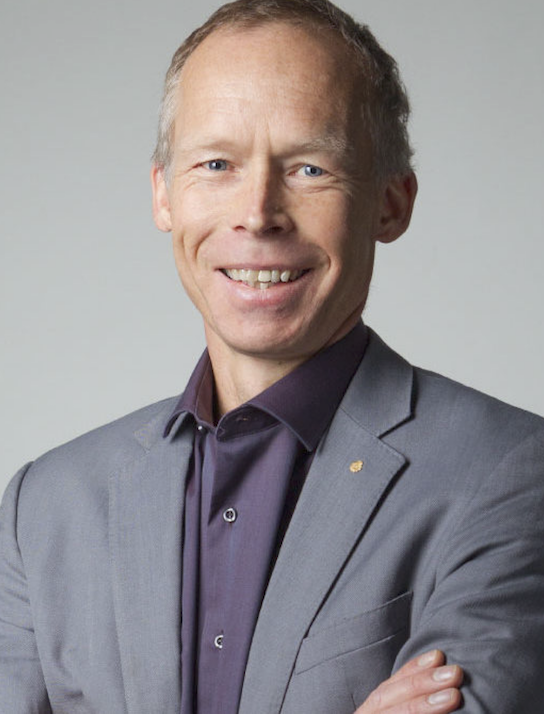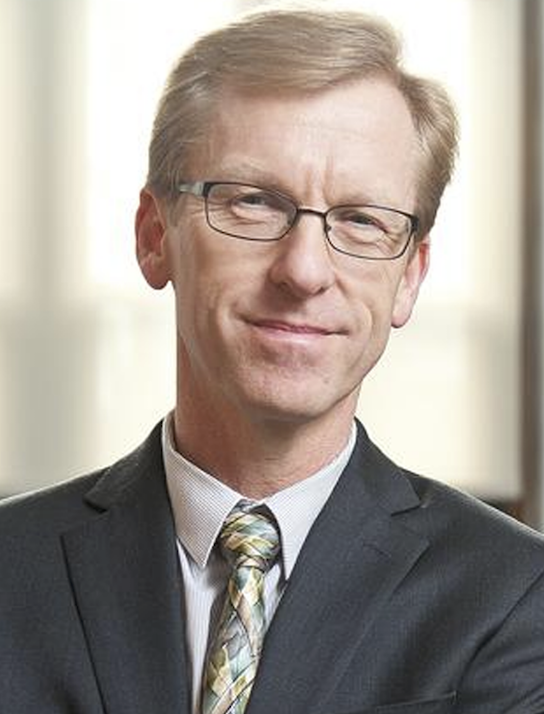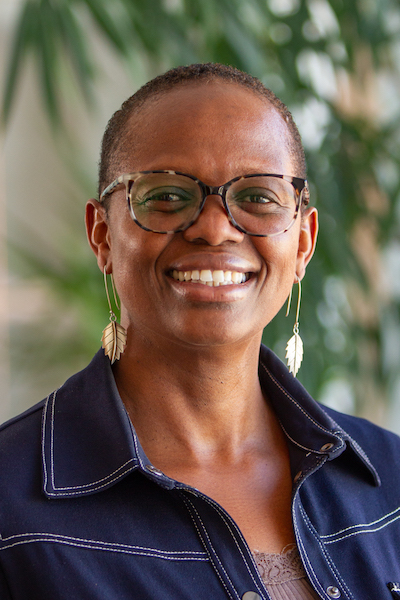Prof. Dirk Messner during his lecture explored linkages between global climate change and development. Prof. Messner argued that it would be impossible to solve problems related to poverty and inequality without addressing the issue of climate change successfully. European Union (EU) has assumed global leadership in both tackling climate change and providing development aid to developing countries. However, devising adequate mechanisms of global governance is also necessary in order to achieve development and to reverse climate change.
Prof. Messner began his lecture by looking at four possible scenarios of global governance that may or may not be fostered by the global economic crisis. The first scenario represented re-engineering of the current Western-centric model. The second scenario represented a regression to fragmentation and protectionism. The third scenario prescribed financial regionalism, while the fourth scenario was the most positive in terms of global governance because it apprehended the model of rebalanced multilateralism. Prof. Messner claimed that the success or failure of development cooperation policy and putting a stop to climate change largely depended upon well-functioning multilateral institutions therefore the fourth model was seen as a necessary precondition for developing efficient global governance structures. Also, he argued that it was necessary to remodel global governance structures because the economic balance of power was very likely to turn upside down until mid-21st century.
Prof. Messner highlighted the role of the EU member states in global development cooperation. EU countries can make a difference despite the fact that most of them are small or medium-sized states. 60% of international official development assistance (ODA) is European, and 65% of bilateral donors are Europeans. Development aid is provided mostly because of the existence of enlightened self-interest on the part of European donor countries. Although European countries have already made significant contribution to global development, the time has come to decide between two conceptions of development policy. The first conception foresees a narrow focus on achieving MDGs, and it is largely aimed at helping the poorest of the poor (the bottom billion). The second conception, however, has a broader focus, and development is seen as part of strategies aimed at improving global governance (improvement of socio-economic conditions in developing countries, tackling world problems such as state fragility, insecurity and climate change, strengthening governance capacity of developing countries, facilitating development of relevant international regimes). Prof. Messner was in favor of the second conception of development policy because it was broader in scope and was better suited for meeting the multitude of global challenges (such as sustainable development, clean water, population and resources, democratization, global convergence of IT, transnational organized crime, energy, status of women, etc.) that humanity faces.
Climate change was singled out by Prof. Messner as being by far the most important of many global challenges. It was stressed that without addressing climate change problem it would be difficult to achieve development and meet MDGs. According to Prof. Messner, there are four fundamental prerequisites for development: soil and food, atmosphere and climate stability, energy, water. Although all four fundamentals are essential for development, their accessibility and availability is likely to be seriously eroded with the growing impact of climate change. Models that have been developed by climate scientists indicate that increasing numbers of population in developing countries are likely to face water stress, desertification, droughts, soil degradation and depletion of resources. Models exhibit that it would be difficult to satisfy demands for water, energy and food of the already existing population, but it is almost certain that world’s population will reach the 9 billion mark by mid-century. Largest population increases are expected in those regions that already have food, water, energy, and soil shortages. Climate change would only aggravate such shortages. Thus, it is almost impossible to achieve global development without addressing the problem of climate change.
De-coupling of energy use and development is an ambitious but necessary target, otherwise global warming would exceed the 2°C. Prof. Messner argued that there is little time left for curbing emissions in order to meet this goal (in order to reduce CO2 emissions by half until 2050). Although this is an ambitious goal, the EU countries should assume responsibility for bringing together both developed and developing countries in order to improve global governance, facilitate long-term thinking during policy preparation process, and write development and climate change objectives into decision-making mechanisms. Europe should also push ahead with the global climate change negotiations, build a low carbon economy, advocate for a MDG-plus development agenda, protect global forests and build low carbon partnerships with Africa, China and India.
Prof. Messner emphasized that the current challenges are enormous, but he was optimistic about the possibility of meeting these challenges successfully because threats, risks and vulnerabilities emanating from global challenges are real. Thus, international cooperation should be possible to achieve. Curbing climate change and achieving development is a collective effort that would require life-style change, new conceptions of wealth, radical improvements in terms of carbon and resource efficiency and transition from the era of national governance to the era global governance. In short, the present model of development is not sustainable therefore humanity should complete transition to a different model of development that is sustainable, and Europe has a key role to play in facilitating this process.
